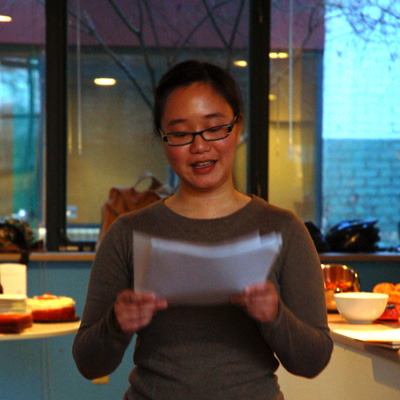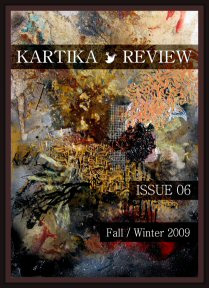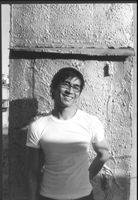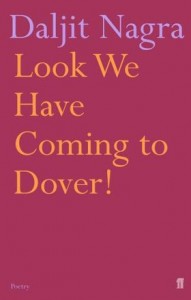Note: This prompt was first introduced to me by poet and UW professor Andrew Feld, author of Citizen (Harper Collins, 2004). Because I found it so helpful to my own writing, I have decided to share it with Lantern Review.

The art of rhetoric, one of the ancient arts of discourse, is the art of persuasion and using language effectively. Rhetorical devices and figures can prove tremendously useful to the contemporary poet, in the sense that they offer one a variety of syntactical structures that force tighter form and syntax, quicker turns in language, and—at times—more rigorous thought.
In my experience, experimenting with “rhetorical poetry” can allow a poet’s language to move in unexpected ways, thus enabling them to explore territory they wouldn’t normally breach. Think of rhetoric as a tool than can be applied to language; the use of chiasmus, for example, will structure your thought in such a way that you begin with a word of idea, move to another, and then circle back to the initial one. Consider the rhetorical effect of this particular construction: the sense of venturing out, circling, and returning is created not by description or narrative, but by the language itself.
The following excerpt from one of my “rhetoric” poems is an example of how using a rhetorical device in your writing can lead to some productive experimentation with voice, tone, and syntactical structure:
Sometime in the nineties, midway through
Her Southeast Asian exile, she directed the Frenchman at the salon
To Do Anything. Thus began the cropped years.
She came home and cried. We all cried.
Here the use of epistrophe is demonstrated in the repeated use of the word “cried” at the end of the two sentences in the final line. Ending both sentences on the beat “cried” affects not only the rhythm of the language, but the manner in which the stanza shapes meaning and tone as well.
To write your own rhetoric poem, refer to this article, entitled “Shakespeare’s Grammar: Rhetorical Devices,” which is a quick glossary of some of the most common rhetorical devices. Select a few (two or three, to begin) devices from the list and incorporate them into your writing by either (1) revising a previously written poem, or (2) tackling some new material. It may be easier to begin with a poem you have already written, although starting on a completely new project may afford you a greater degree of freedom.
In short, consider the ways in which rhetoric can take pressure off you as a poet. Let syntax do the work of poetry—you may be pleased with the results! We would love to see any experimentation that results from your work with rhetoric, so please consider posting your responses on our blog.






